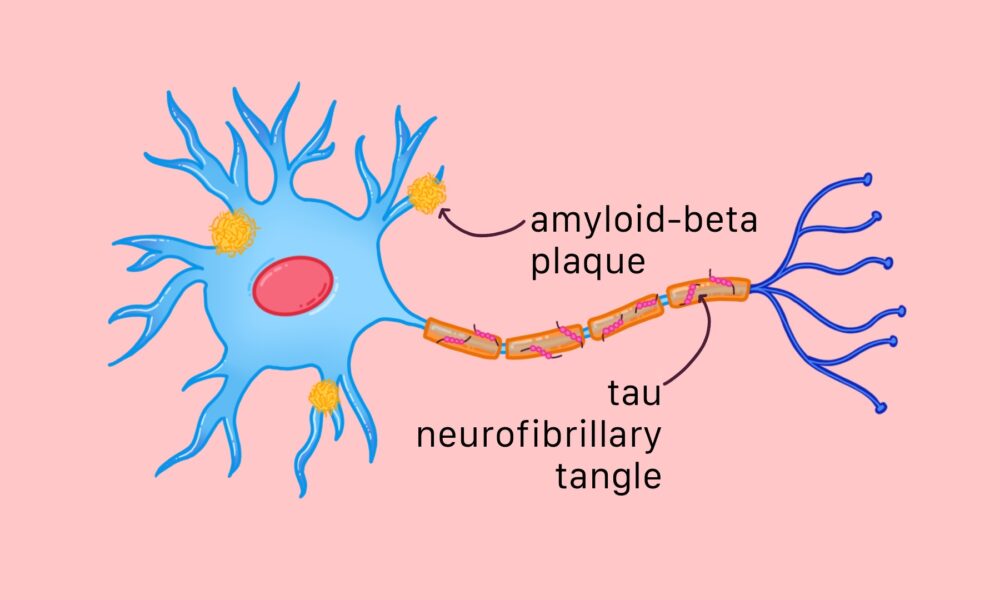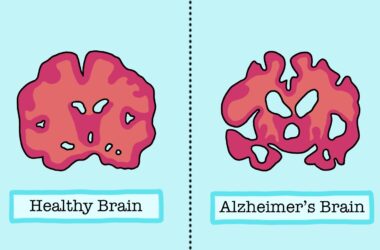Menopause is often associated with sleep disturbances, hot flashes, and mood swings—but could it also play a role in brain health? While most people do not immediately link menopause with Alzheimer’s disease (AD)—a brain condition that results from the buildup of amyloid and tau proteins in the brain—research suggests that the decline in estrogen during this stage of life may contribute to an increased risk. With women making up nearly 70 per cent of all Alzheimer’s cases, scientists are exploring whether hormone replacement therapy could help protect the brain and reduce this risk.
Yi-Tang Wang, a researcher at McGill’s Department of Neurology and Neurosurgery, investigated the effects of hormone therapy on Alzheimer’s-related biomarkers. These biomarkers, such as phosphorylated tau (p-tau), can indicate the buildup of amyloid plaques and tau neurofibrillary tangles (NFTs) in the brain even before the patient begins showing symptoms of Alzheimer’s.
“We have these biomarkers from both neuroimaging and biofluid that can identify the pathology happening in the brain before the symptoms actually show up,” Wang said in an interview with The Tribune.
In an observational study, Wang found that postmenopausal women who had undergone hormone therapy exhibited lower levels of Alzheimer’s-associated biomarkers than those who had not. This suggests that hormone therapy decreases the accumulation of amyloid plaques and NFTs in the brain. Furthermore, as the buildup of amyloid is thought to accelerate the buildup of NFTs, Wang also found that hormone therapy might help to reduce this interaction.
However, she emphasized that this does not necessarily mean hormone therapy can prevent Alzheimer’s.
“[This study] is not trying to tell you—or recommend you—to take hormone therapy to prevent AD […] It provides certain evidence that hormone therapy might link to AD biomarkers in the brain, [but] its goal is not really to give you any recommendations,” Wang clarified.
Research on the effect of hormone therapy on cognitive decline has been inconclusive. While some studies suggest it reduces Alzheimer’s risk, the Women’s Health Initiative Memory Study (WHIMS) found no such benefit and even suggested a potential increase in dementia risk.
These discrepancies are likely due to differences in study design, participant populations and hormone therapy timing and dosage. Furthermore, genetic factors, such as carrying the APOE ε4 gene—a major Alzheimer’s risk factor—may influence how individuals respond to hormone therapy. Socioeconomic factors also play a role, as women who undergo hormone therapy typically have better access to healthcare and tend to be more educated, which could contribute to improved health outcomes that are not necessarily representative of all women.
Despite Wang’s desire to investigate the impacts of hormone type, treatment duration, and genetic predisposition, her study’s small sample size limits the ability to study these variables separately.
“When you [want] to do too many things, you really don’t get to if you don’t have a big sample size. But that means you are sacrificing [considering] certain factors that could impact the results,” Wang said.
Wang calls on the need for large-scale case-control studies to conclusively determine the potential of hormone therapy as a way to prevent Alzheimer’s. She is also interested in uncovering the reason behind the sex disparity in Alzheimer’s, asserting that it will help scientists better understand the mechanisms of the disease and develop sex-specific treatment approaches.
“One of the reasons why we really want to try to explain the sex difference is we want to know if there’s certain strategies that need to be changed between men and women. We don’t want a one-size-fits-all strategy,” Wang said.
Overall, Wang’s study shows that hormone therapy reduces levels of Alzheimer’s-associated biomarkers and she hopes to enable future studies regarding Alzheimer’s risk and treatment in women.









